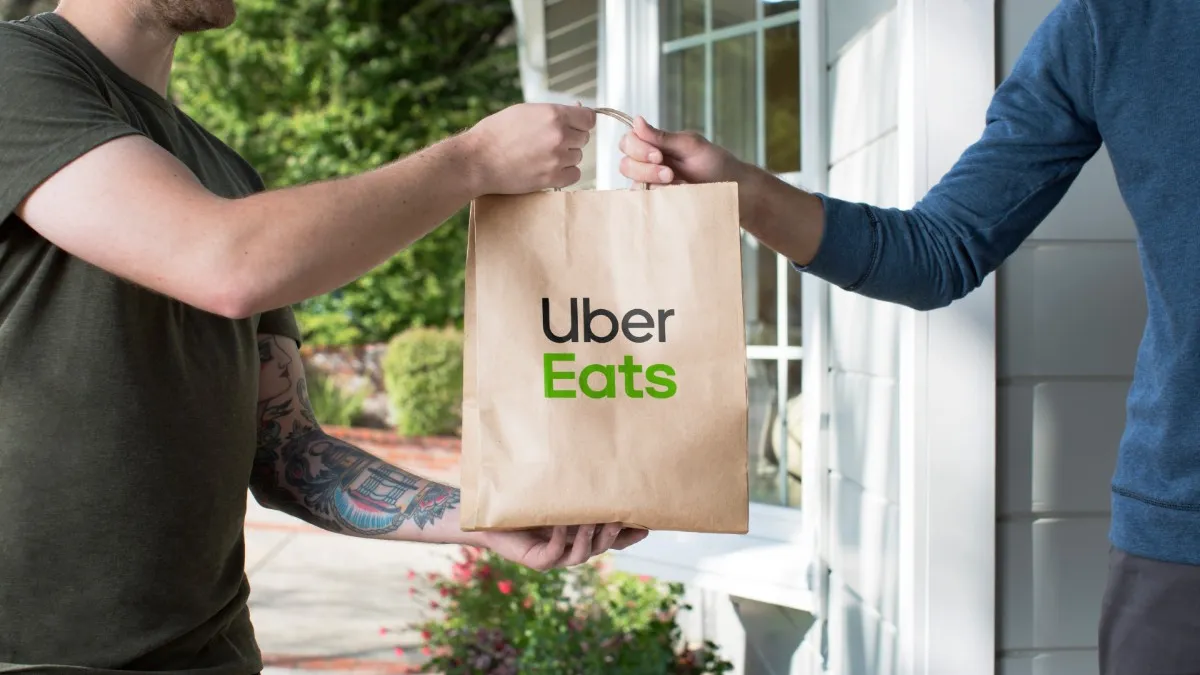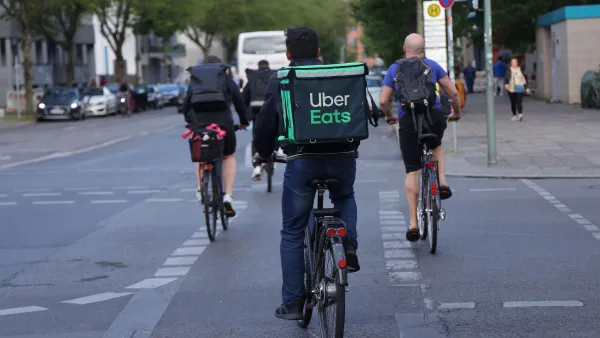Dive Brief:
- Uber last week announced a partnership with Rachael Ray to open a virtual restaurant with a menu that is only available via the Uber Eats app, according to The Spoon.
- The Rachel Ray virtual restaurant will be available for just 10 weeks in 10 cities, and will be launched to coordinate with Ray's new cookbook.
- Last year, Uber Eats revealed plans to roll out 400 "virtual kitchens" in the U.K. by the end of 2018 and expanded the concept into Paris earlier this year. It had over 2,000 virtual restaurants globally at the start of the year.
Dive Insight:
This partnership with Rachael Ray continues Uber Eats' virtual kitchen expansion, suggesting that the company likes what it’s seeing in this category. In addition to its growing footprint in Europe, Uber Eats previously opened about 1,500 virtual restaurants in the U.S. and Canada.
The move into the virtual kitchen space seems to mark a new competitive category for delivery companies. Earlier this month, Grubhub launched a virtual restaurant with Bon Appetit, called Bon Appetit, Delivered, featuring the most popular dishes from the magazine and its digital properties. The company also partnered with Lettuce Entertain You in August to launched a Whole30-branded virtual restaurant. DoorDash also launched a commissary kitchen in Silicon Valley to house four delivery-only restaurants in 2017.
There are plenty of reasons delivery companies are eyeing this space. Grubhub recently shared a blog post highlighting how partner restaurants can boost sales and test new menu offerings through ghost kitchens, while also inviting them to test the concept on its platform. This marks a transition from food delivery providers simply providing last-mile logistics to acting more as partners with the restaurants that they service.
Since virtual kitchens are still a relatively new concept, leveraging celebrity chefs like Ray and niche cuisine publications like Bon Appetit could prove to be an effective way to generate interest. It may turn capture the interest of foodies while also exposing them to the number of other offerings available through those kitchens, perhaps enabling both delivery companies to ramp up their virtual kitchen presence.
This partnership is also a big win for Ray, who will be able to promote her new cookbook and share its recipes through a major delivery channel. This makes sense considering that the very idea of virtual kitchens is to eliminate touch points between restaurant and customer. Prior, Ray and Bon Appetit, for example, were never really considered to be restaurant competitors, but that may change now as their recipes become more accessible through the popular delivery platforms.
Although a majority of customers still order directly from restaurants, according to E-Poll Market Research, these types of partnerships could become quite disruptive to the industry if they continue to grow through virtual kitchen channels. Or, they could just provide a limited-time boost as delivery companies try to establish their presence in this fledgling category.













